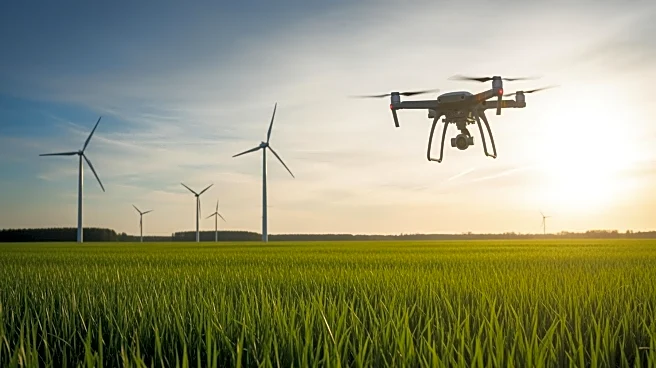What's Happening?
During a recent Climate Week panel, journalist Michael Grunwald and Britt Groosman from the Environmental Defense Fund discussed the significant environmental impact of agriculture. Grunwald emphasized
that agriculture is the largest environmental problem, using 70% of fresh water, causing deforestation, and contributing to greenhouse gas emissions. Groosman highlighted the moral issue of food waste, noting that 70% of the world's water is used to grow food, half of which is discarded. Both experts argued for re-engineering agriculture to be climate-smart, focusing on technological advancements to increase productivity without expanding land use.
Why It's Important?
The discussion underscores the urgent need to address agriculture's environmental footprint, which is central to climate change mitigation. The current agricultural practices contribute significantly to deforestation and carbon emissions, impacting biodiversity and climate stability. By adopting technological solutions, such as gene-edited crops and efficient livestock management, the industry can reduce its environmental impact while meeting global food demands. This shift is crucial for sustainable development and could lead to 'triple wins' for farmers, consumers, and the planet, aligning economic growth with environmental preservation.
What's Next?
The panelists advocate for increased investment in research and development to create climate-resilient crops and improve livestock efficiency, particularly in developing regions. They also call for consumer behavior changes, such as reducing beef consumption and minimizing food waste. The focus is on making environmentally friendly options more accessible in supermarkets, aiming for a significant reduction in agriculture's carbon footprint. As agriculture becomes a central topic in climate policy discussions, stakeholders are expected to collaborate on innovative solutions that balance food production with environmental conservation.
Beyond the Headlines
The conversation highlights the ethical dimensions of agriculture, questioning the sustainability of current practices and the moral implications of food waste. It also points to the potential for technological innovation to transform the industry, similar to the clean-energy revolution. The shift towards sustainable agriculture could redefine global food systems, promoting biodiversity and reducing emissions. This transformation requires a collective effort from policymakers, industry leaders, and consumers to prioritize environmental health alongside economic growth.









